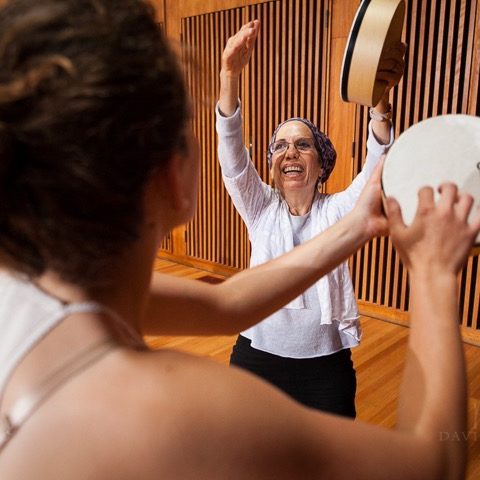Dalcroze Applications
The impact of Dalcroze Education extends beyond the music classroom. Discover how Dalcroze teachings have been applied to other disciplines including music therapy, dance education, theater, and design.
Music Therapy
Émile Jaques Dalcroze believed in adapting curriculum to the individual and using music as a way to educate the whole child, mirroring many music therapy philosophies. To him, sensory experiences and kinesthetic learning were vital for the learning process. Dalcroze education leads hearing to moving to feeling to sensing to analyzing, and can be can be translated into goals set by music therapists.
By tapping into the power of physical movement, the Dalcroze approach offers therapists a set of tools for brining their clients to higher levels of musical understanding and skill. The Dalcroze experience satisfies our desire to move together with others and find our place in a community. In "Moving Ourselves, Moving Others," the authors show how eurhythmics also has the ability to improve self-regulation and interpersonal attunement.
Music therapists have used eurhythmics to address goals such as body and spatial awareness, self-expression, improving mental alertness and attention, fostering creativity and imagination, fostering peer acceptance and group inclusion, and to provide relaxation experiences.
Other Disciplines
Dalcroze education has already been applied to many other disciplines, including these below.
- Dance Education and Performance
- Collegiate Solfège/Theory Courses
- Private Lessons
- The Suzuki Method
- Single Line Instruments
- Choral/Instrumental Rehearsal and Performance
- Theater, Drama, Acting Courses
Do you incorporate Dalcroze into your teaching? We'd love to hear from you.
Join the DSA
Support the work of the DSA by becoming a member.
Further Reading
• Remembering Annabelle Joseph (Katie Couch)
• Member Spotlight: Michelle Li (Katie Couch)
• Quick Reactions with a Dalcroze Teacher: Stephen Neely (Michael Joviala)
• DSA Member Spotlight: Mira Larson (Katie Couch)
